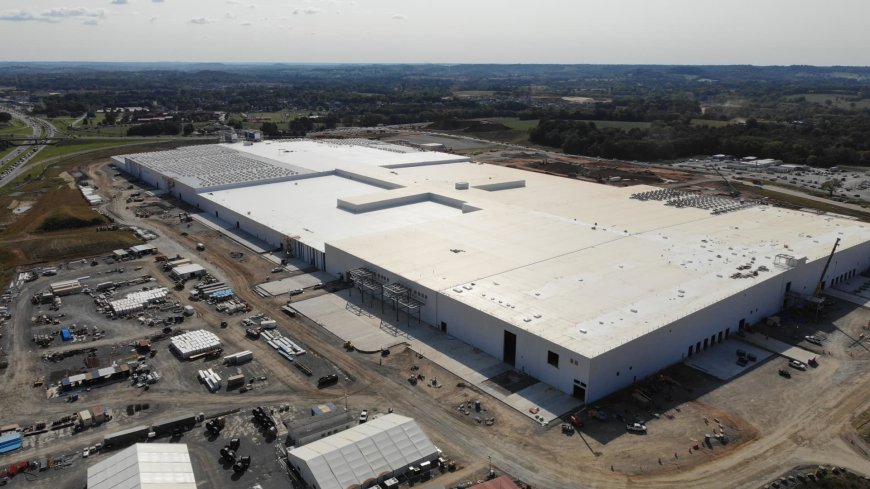GM and LG to Upgrade Tennessee Plant for Low-Cost EV Batteries
Ultium Cells, a joint venture between General Motors and LG Energy Solution, is upgrading its Spring Hill facility in Tennessee to produce low-cost electric vehicle battery cells. The new lithium iron phosphate cells are expected to be cheaper than traditional lithium-ion batteries due to not requiring expensive minerals like cobalt and nickel.

Ultium Cells, a joint venture between General Motors and LG Energy Solution, is upgrading its facility in Spring Hill, Tennessee, to produce low-cost electric vehicle battery cells. The lithium iron phosphate battery cells, known as LFP, could be cheaper than those used in some EVs because they do not require costly minerals like cobalt and nickel found in standard lithium-ion batteries.
Kurt Kelty, GM's vice president of batteries, propulsion, and sustainability, stated that the upgrade will allow the production of lower-cost LFP cell technologies in the U.S., complementing their existing solutions and expanding their EV portfolio. GM currently offers 12 EV models with prices ranging from $35,000 to over $300,000.
In collaboration with LG, GM invested $2.3 billion in the Tennessee battery plant in 2021. Ultium expects commercial production of LFP cells to start by late 2027. GM is also working on new battery technology for its larger electric SUVs and trucks, emphasizing the importance of different battery chemistries on EV performance and capabilities.
GM has allocated $900 million for new battery development labs in Michigan. CEO Mary Barra previously announced GM's commitment to offering only EVs by 2035, with a planned investment of $35 billion between 2020 and 2025. However, GM has adjusted its EV strategy based on customer demand and has not disclosed its total EV investment to date.
According to the source: CNBC.
What's Your Reaction?
 Like
0
Like
0
 Dislike
0
Dislike
0
 Love
0
Love
0
 Funny
0
Funny
0
 Angry
0
Angry
0
 Sad
0
Sad
0
 Wow
0
Wow
0




















































































































































































